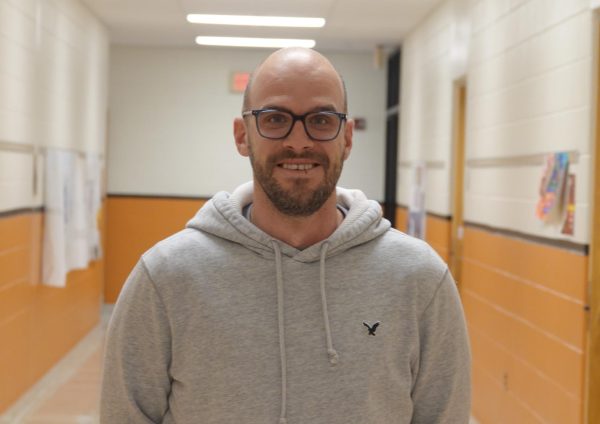Stressed Out? Get Help!
Olivia Watson. Photo illustration by Sarah Meyer.
The SAP program has helped thousands of Tyrone students over the years.
With the school year coming to a close and finals just around the corner, for some students, stress is building to an all time high. Seniors worry about what the future may hold and underclassmen are concerned about finishing their classes. Whether you stress all the time or not at all, a way to relieve it is very important. But to some people their stress never goes away.
In the hallways at TAHS many students are talking, gossiping, and being normal students. But some are set off to the side, walking fast to their next class, or just avoiding any contact with their fellow classmates. These students are seen as invisible and feel like it too.
According to research collected by the NCCP (National Center for Children in Poverty) 20% of adolescents have a diagnosable mental health disorder. A quarter of these individuals have depression. In adolescents, suicide is the third leading cause of death.
Within the cliche high school movie, there are the popular kids, the ones who always have friends and never seem to have a bad moment. Real high school has the normal students; the ones who are average at school and have some lows but always come back from them. Then there are those who have depression, generalized anxiety, OCD, social anxiety, eating disorders, schizophrenia, and the list goes on and on and on.
According to research collected by the NCCP (National Center for Children in Poverty) 20% of adolescents have a diagnosable mental health disorder. A quarter of these individuals have depression. In adolescents, suicide is the third leading cause of death.
Some adolescents, however, are not diagnosed and push through each day not knowing that their struggles are because of a mental illness. Untreated mental problems lead to negative outcomes such as poor school performance, school dropout, strained family relationships, and involvement with juvenile justice systems.
Students should be aware of the illnesses, and fellow classmates should most definitely be supportive to those who do suffer mental illnesses. Mental illnesses are not a joke that can be made fun of in the hallways or classrooms. They should be taken seriously and most importantly, should be recognized by teachers.
Mental illnesses are not a joke that can be made fun of in the hallways or classrooms. They should be taken seriously and most importantly, should be recognized by teachers.
Teachers should also realize that these students and many others go through so much everyday. To put on a fake smile, and push through their classes and finish each MP with good grades. All this to not be noticed, to not be known, and to never be bothered by their “worried” peers.
But school is not the growing problem in this situation. In your life there are events that you don’t expect to happen. A parent getting cancer, parents divorcing, someone dying in your family, losing a friendship, moving school districts, not getting a job and the dreaded list can go on forever. These events can lead to depression, and increased stress. In this time of mourning, it is important that people are there to talk to. The “Are you okay?” question will arise and that answer will be “yeah, I am fine,” but that is a total lie.
According to research, admitting that you are not okay is a sign of weakness. In life no one wants to show weakness, it is a part of human nature. With stress, people often say that they don’t want to be a bother or nuisance. Anything dealing with bothering someone, or putting the pressure on someone to “be there” in times of need is not what you want.
But the point of all of this is that you are not alone. Yes, many do not understand what you go through daily, but they still can help. Text a friend, your parents, a teacher, or a counselor at school.

Hi! My name is Olivia Watson, and I am a senior. I have spent my whole life at Tyrone and have always been a proud Golden Eagle. While I have been at this...


















